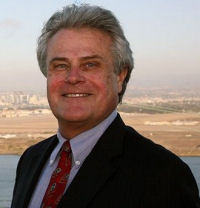
“Your source for Trusts, Wills, Probate, Family Law & more”
By Stephen C. Ross, Esq.
February 17, 2013 (San Diego County) – I often talk with people who believe estate planning is only for the wealthy. However, even people with few assets may benefit from proper estate planning.
You may be subject to formal probate proceedings if the gross real and personal property value of your estate exceeds $150,000 and you do not have a revocable trust. A properly prepared power of attorney for health care may avoid the need for a costly conservatorship proceeding if you subsequently lack capacity to make your own decisions. A power of attorney may avoid a conservatorship proceeding and ensure that a person you trust is ready to handle your financial affairs if you become incapacitated.
A well-designed estate plan can give you peace of mind knowing someone you trust is there to make health care and financial decisions for you if you become incompetent, then manage your estate and distribute your assets to the people and entities of your choice after your death. A basic estate plan should meet the needs of most people and typically includes the following:
1. Revocable Trust. A trust can be a useful property management tool during your lifetime and ensure your estate will not be subject to the time and expense of probate on your death. The trust terms determine how you want your assets managed during your lifetime, who will act as trustee, the trustee’s powers and to whom, how and when your assets will be distributed on your death. A revocable trust may be revoked or amended during your lifetime while you are competent. The trust must be funded with your assets to avoid probate.
2. Pour-Over Will. This will may be used to transfer assets to the trust that were not transferred to the trust during your lifetime. It is a safety net to ensure your assets will ultimately be managed and distributed pursuant to the terms of your trust even though they may have to be probated. The trustee may be able to collect and distribute assets without probate if the total value of the assets not transferred to the trust does not exceed $150,000.00.
3. Power of Attorney. A general, durable power of attorney names an agent to manage your financial affairs during your lifetime if you become incapacitated. Your agent typically will be able to buy and sell property, manage investments, make bank deposits, pay bills, etc. A general power gives your agent authority to manage all your business transactions and your property. However, certain powers must be specifically granted in the document. A durable power is one that either remains in effect or comes into effect upon your incapacity.
4. Advance Health Care Directive. An Advance Health Care Directive contains both your health care instructions and a power of attorney for heath care. You can give your agent either very specific or general instructions concerning future health care decisions. Health care instructions often specified include end-of-life decisions and organ donation. It’s a good idea to designate at least two agents in the power of attorney in case the first agent is not able to act. I suggest including Health Insurance Portability and Accountability Act (HIPAA) language in the directive to give your agent access to your medical records.
5. Assignment of Personal Property. This document assigns personal property lacking a title document to your trust. Examples include: furniture; furnishings; appliances; clothing; jewelry; art; and, the contents of a safe deposit box.
6. Deed. Your real property is placed in the trust by recording a deed transferring the property from how you currently hold title to you as trustee of your trust. A Quit Claim deed is typically used for this purpose. A Preliminary Change of Ownership Report must be provided to County Recorder at the time you submit the new deed. Transferring property into or out of a revocable trust does not trigger a taxable event.
7. Certification of Trust. This document provides the extent of the trustee’s powers to financial institutions and others dealing with the trustee. It keeps confidential the dispositive terms of the trust that do not need to be disclosed.
8. Trust Funding Instructions. A trust must be properly funded to be an effective asset management tool during your lifetime and to avoid probate. Your attorney should provide you with these instructions at the time you sign your estate planning documents.
Stephen represents estate planning, trust, will, probate, trust administration, business formation, stepparent adoption and family law matters. He conducts estate planning and probate seminars throughout San Diego County. For more information or to schedule a seminar contact Stephen at (619) 795-8524, stephen@stephenrosslaw.com or visit www.stephenrosslaw.com.
Disclaimer: Information contained in this article is believed to be accurate. However, you should seek professional legal advice before relying on the information.







Recent comments